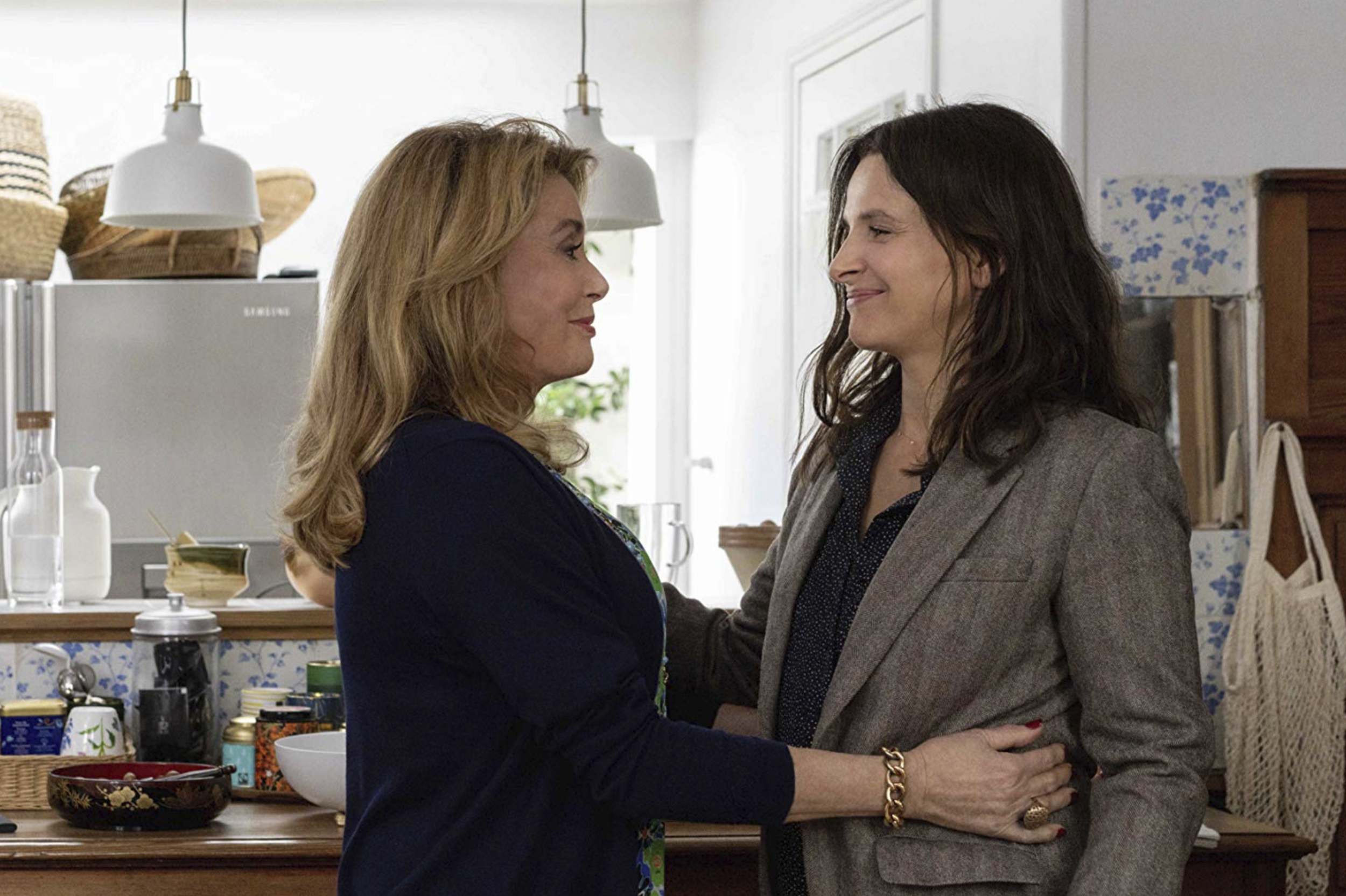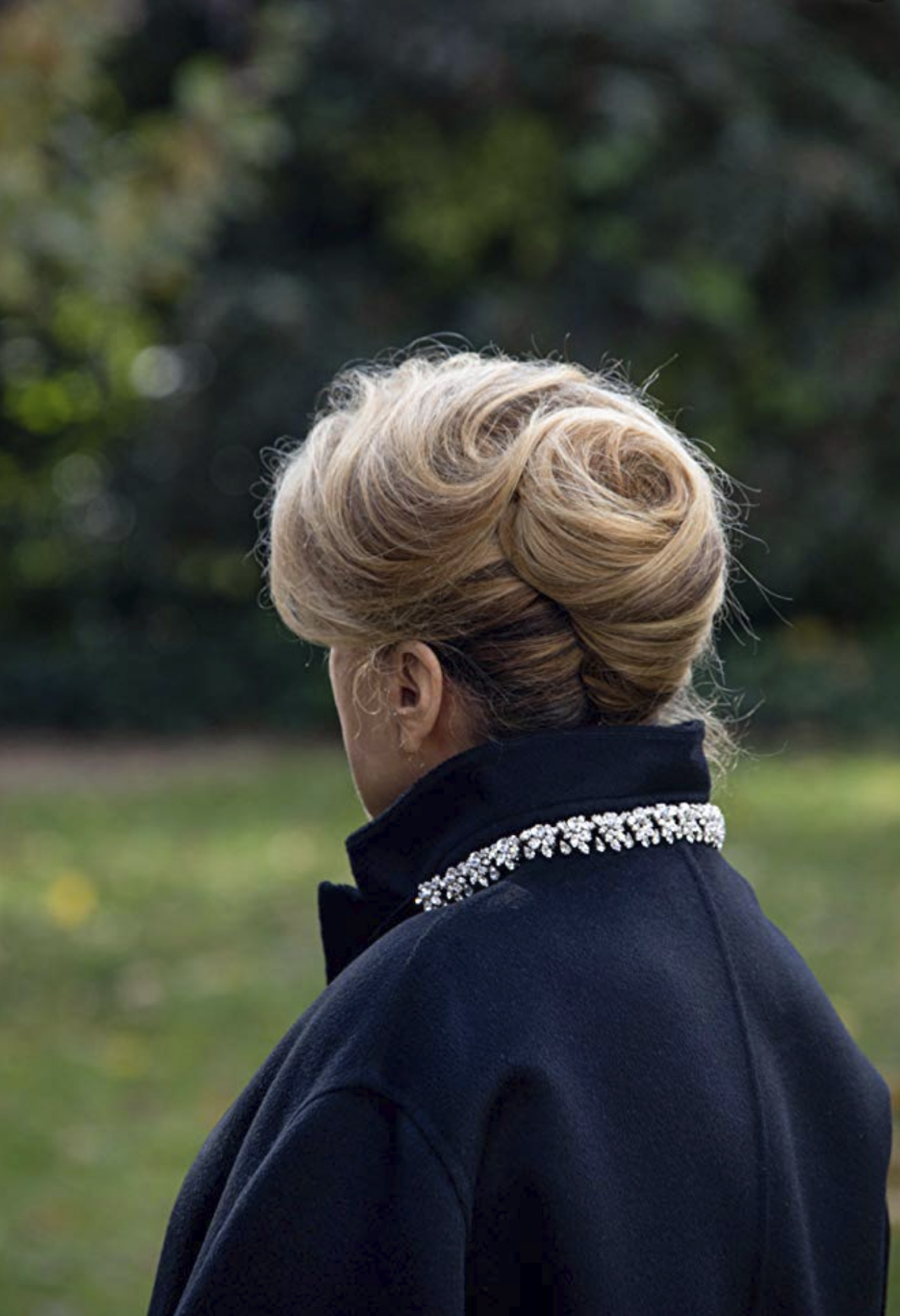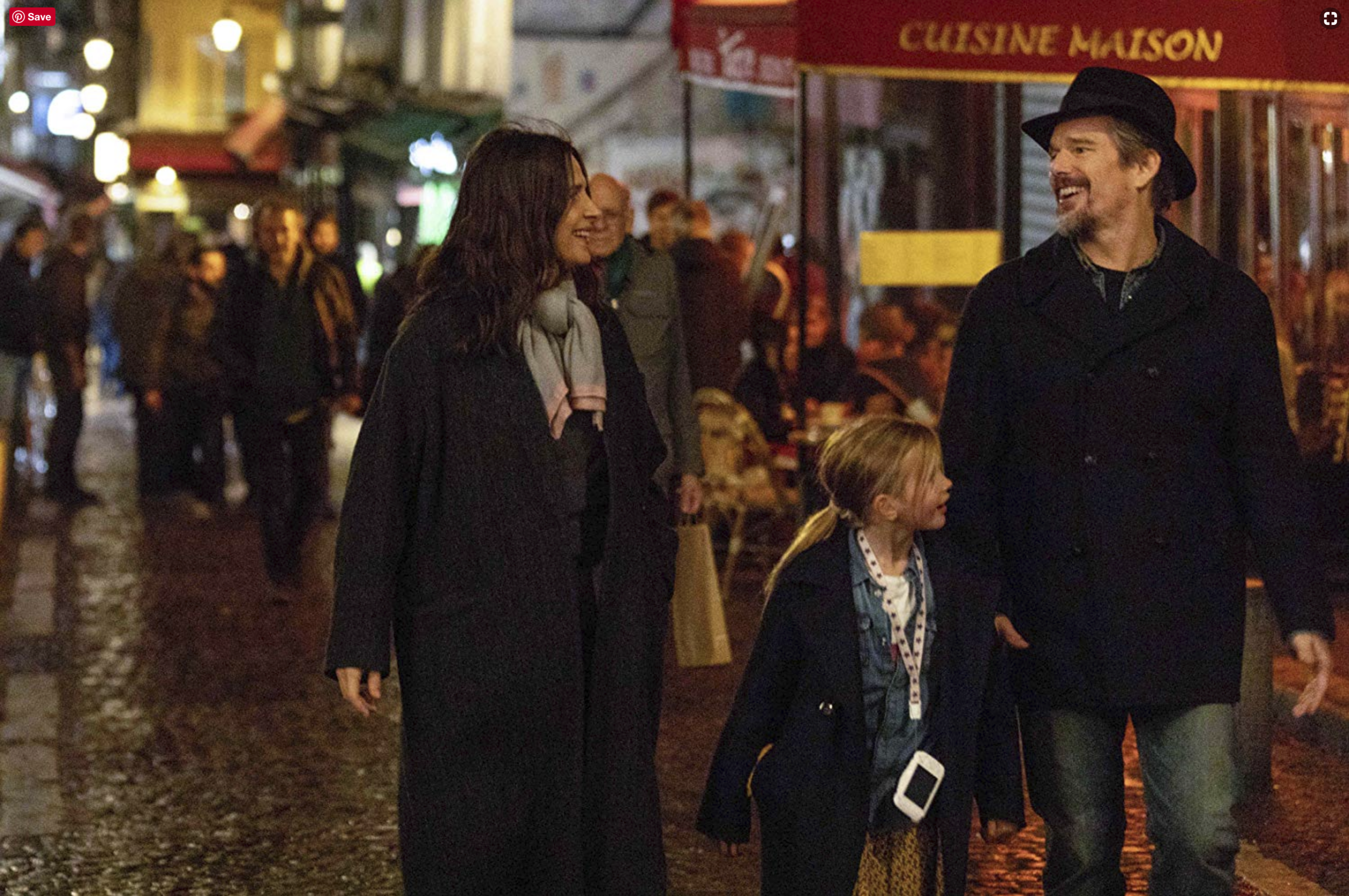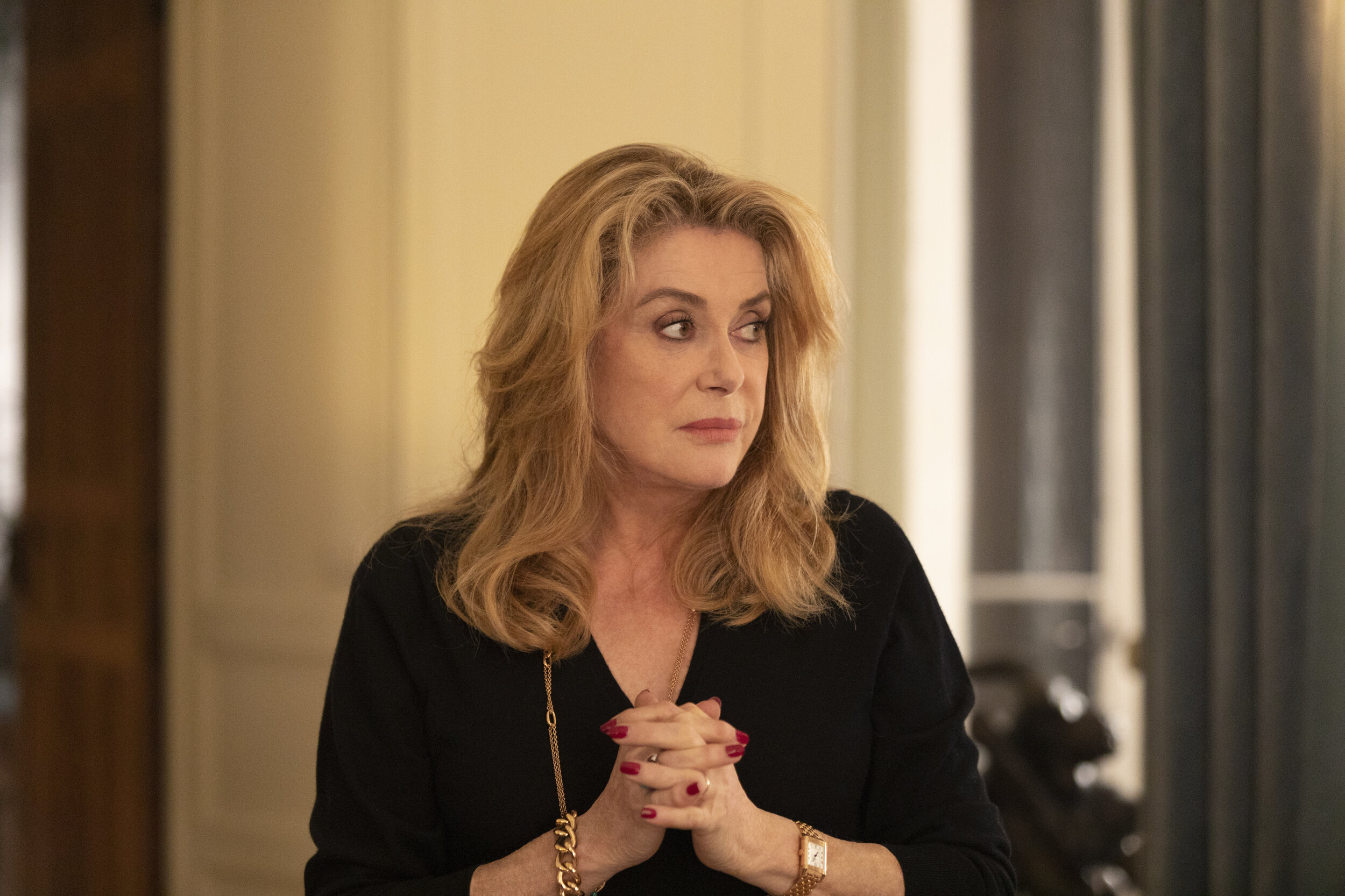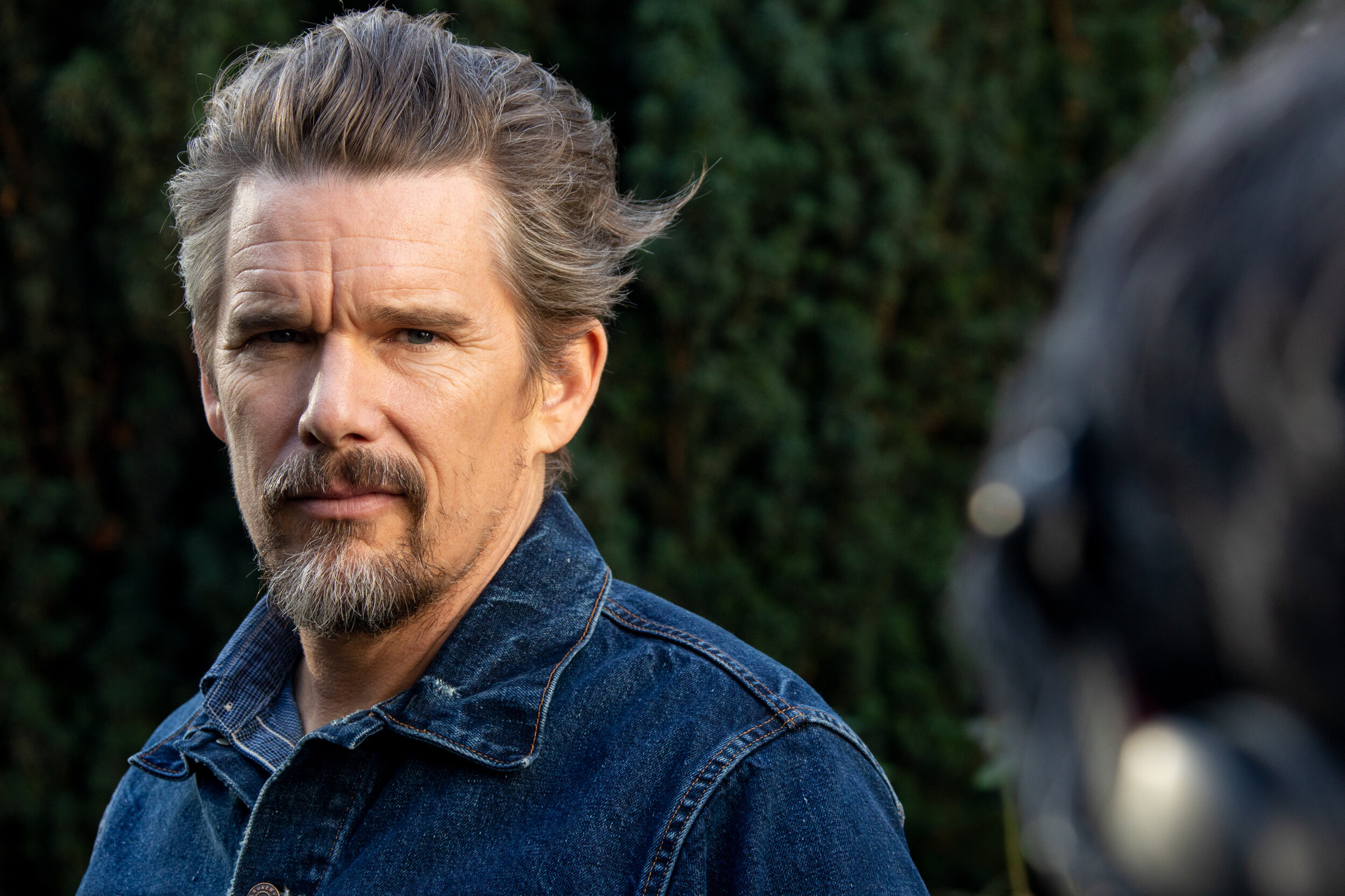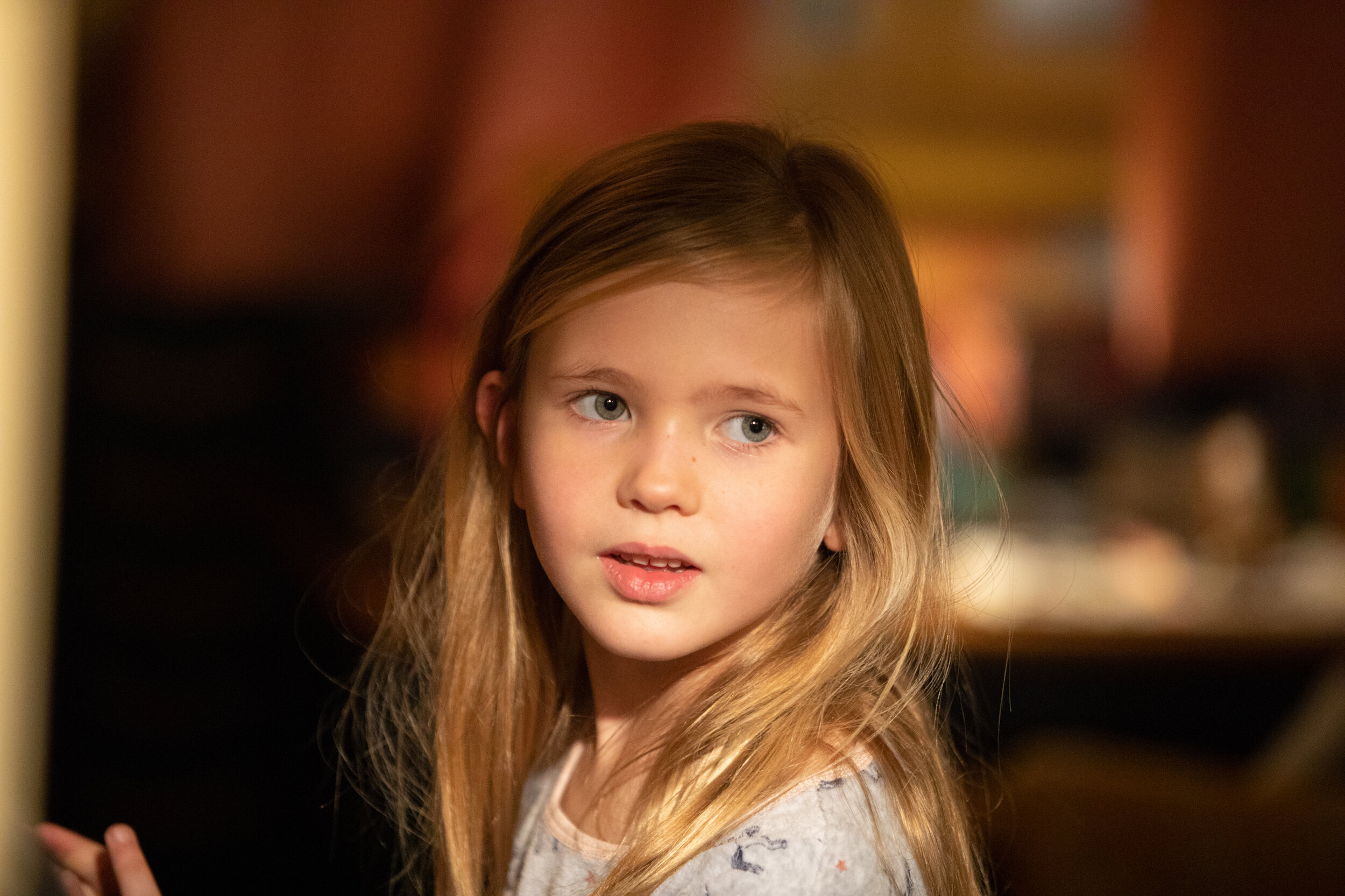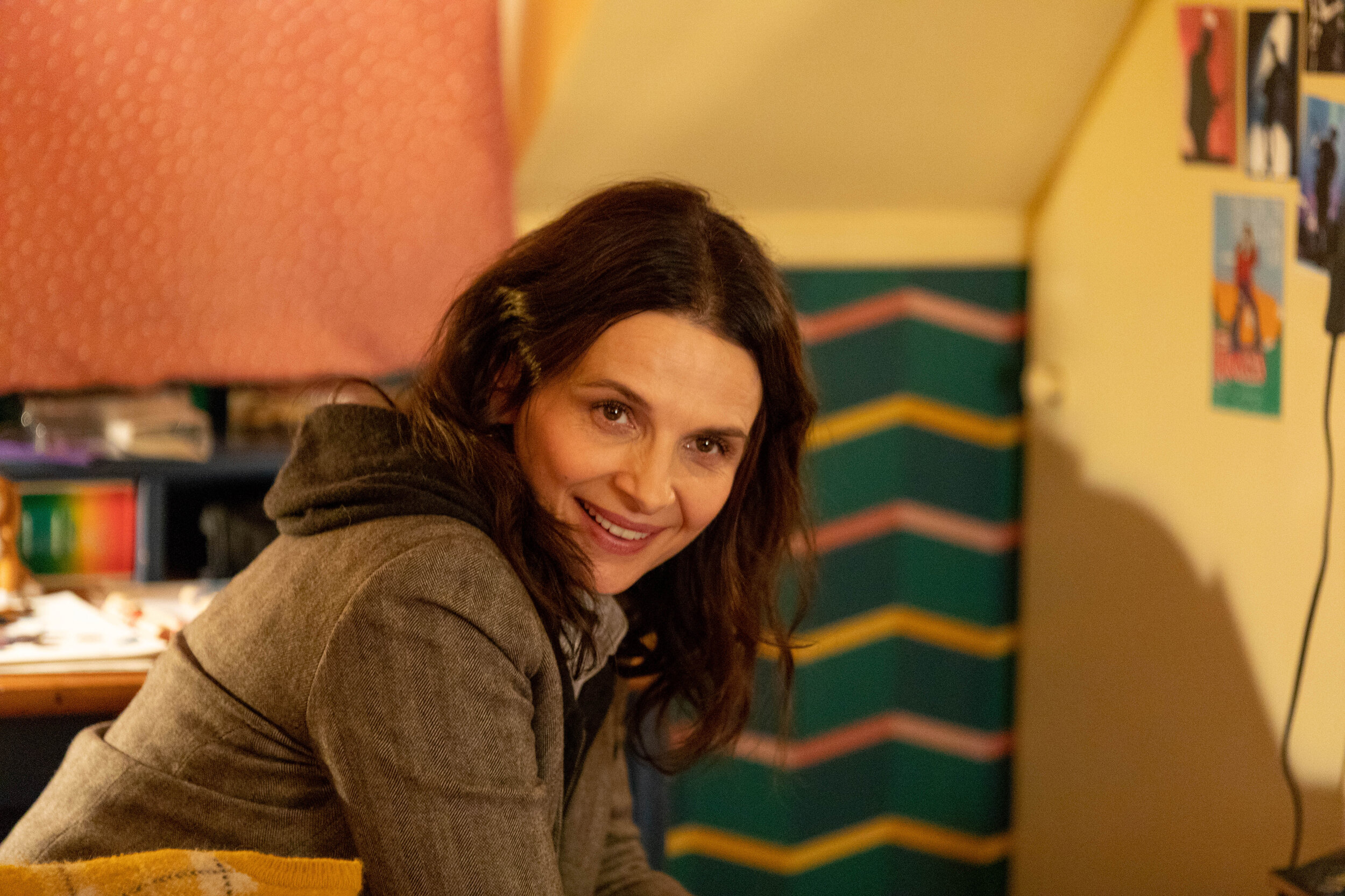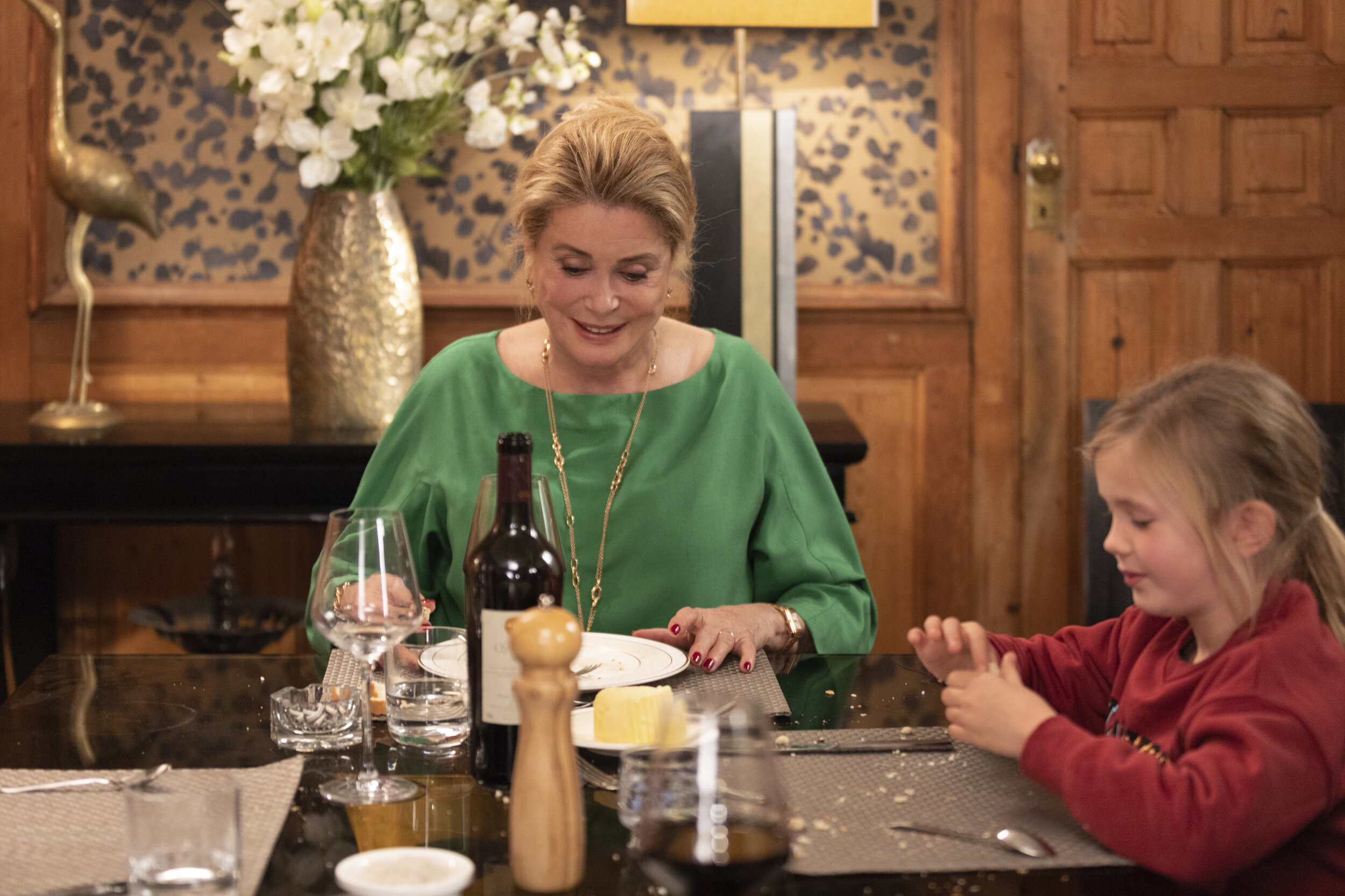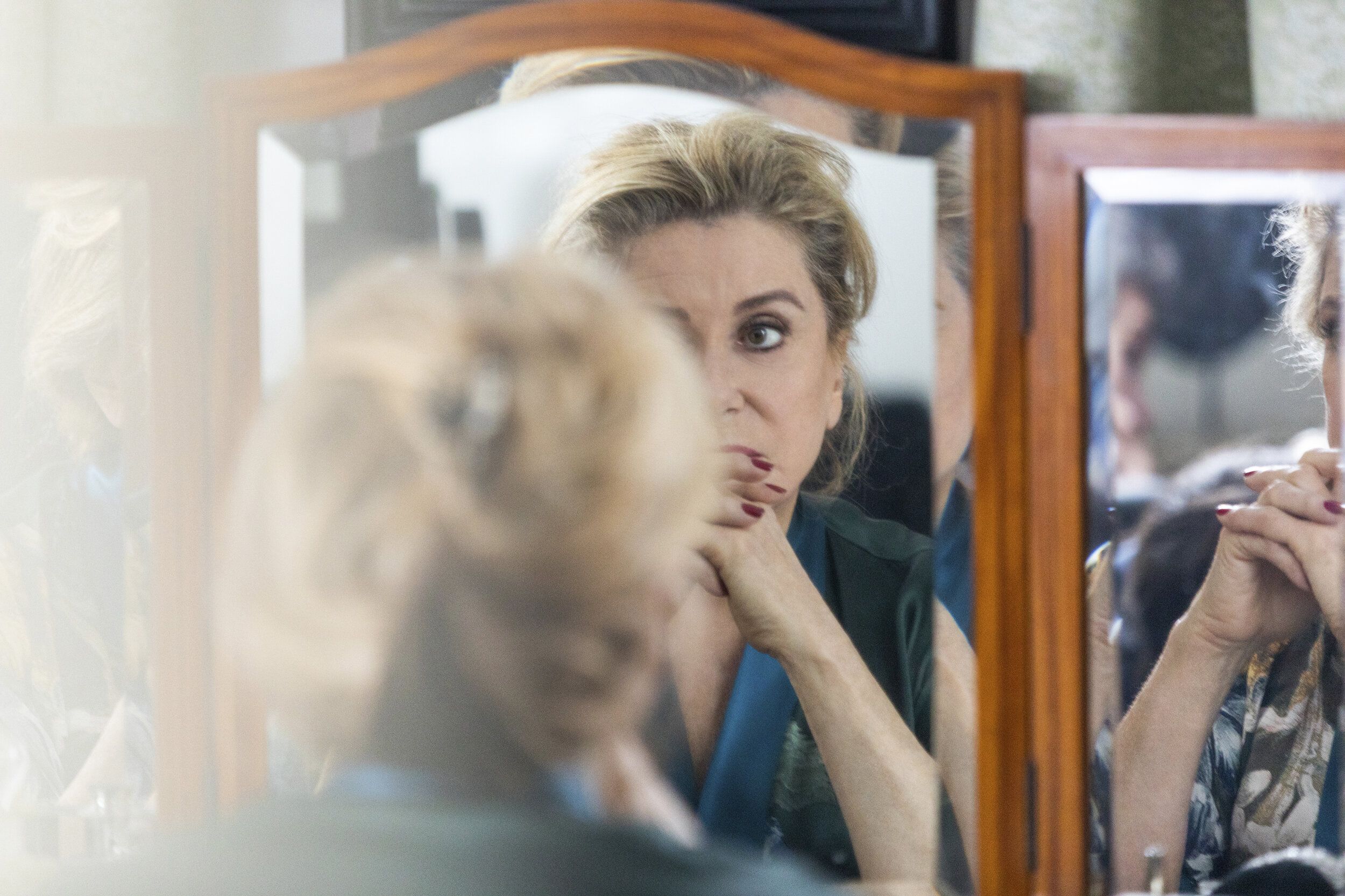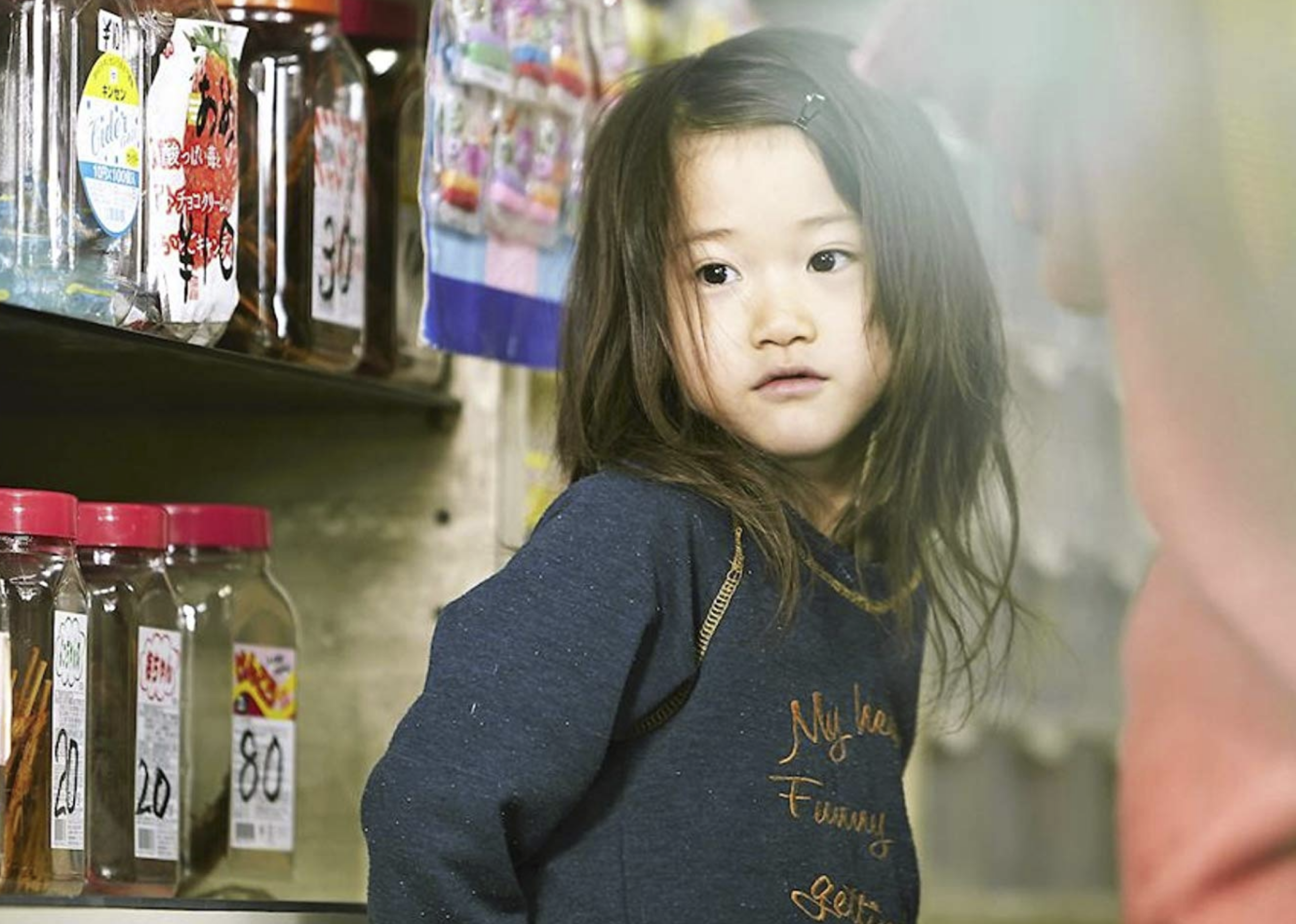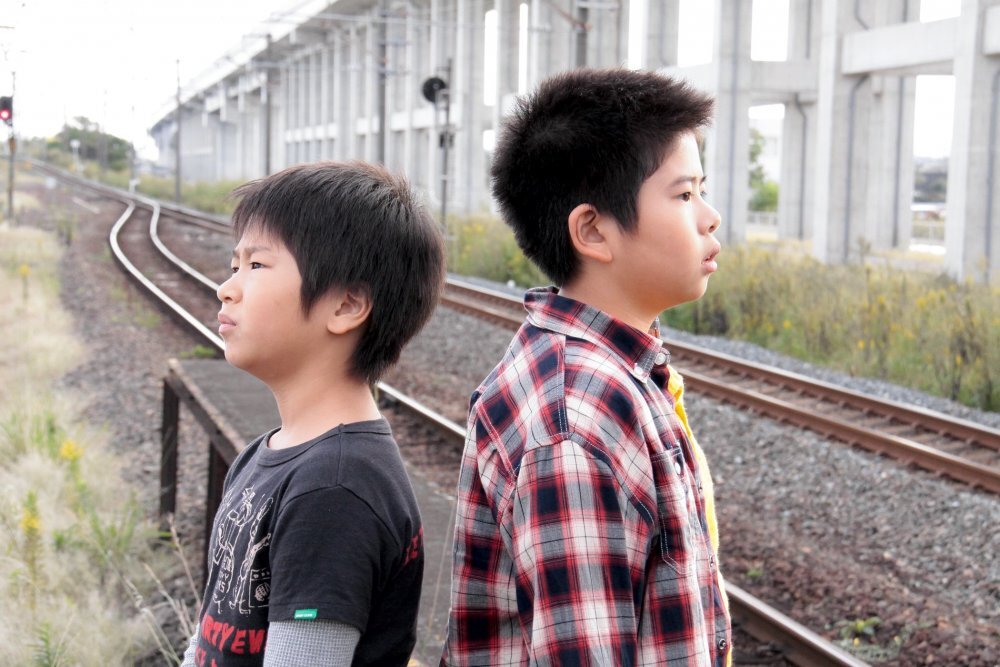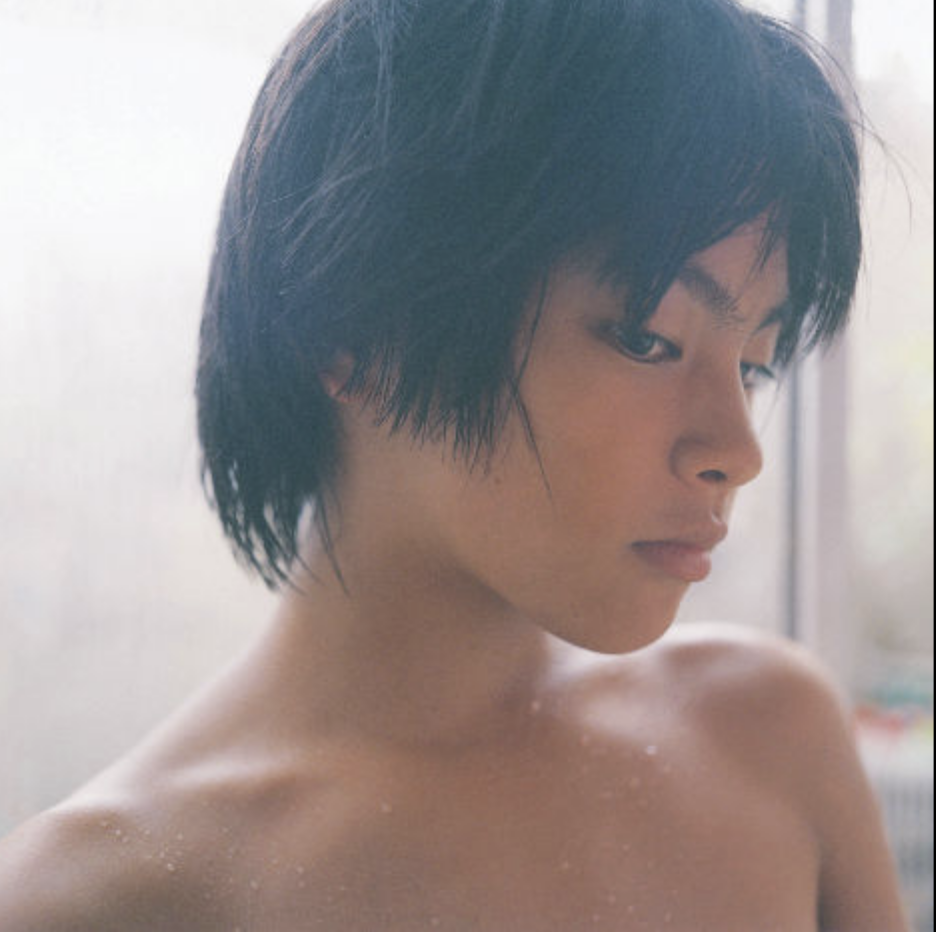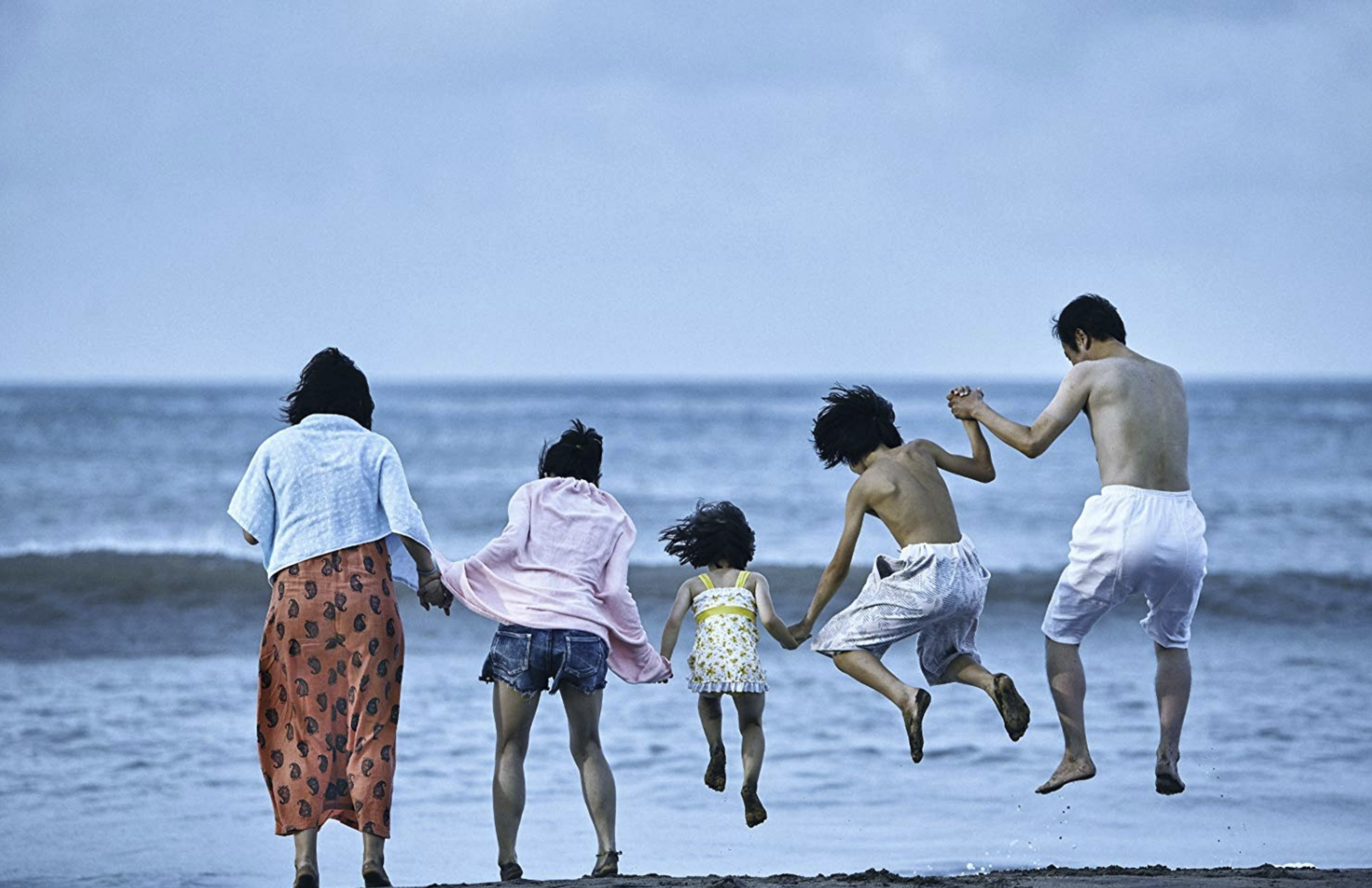Kore-eda Hirokazu : I AM The Truth
The Truth (2019) feat. Ethan Hawke, Juliette Binoche, Catherine Deneuve, Clémentine Grenier © L.Champoussin / 3B Productions - Courtesy of Palace Films
Interview by Editor-In-Chief, Liberté Grace
Master filmmaker Kore-eda Hirokazu is renown for having written, directed and edited over 13 feature films and documentaries, exploring the central theme of family, in his hometown of Japan. After winning the Palme d’Or at the Cannes Film Festival in 2018 for his universally lauded family drama Shoplifters—about a band of misfits brought together by a life of petty theft—Kore-eda quickly became one of the most sought after directors in the world to work with.
His latest film The Truth, featuring an all-star Western ensemble; Juliette Binoche, Catherine Deneuve, and Ethan Hawke—is his first foreign-language film made in French and English—that was conceived after what he says was a “not very good” sushi lunch in 2008 with Binoche, who admired his work, long before he received awards recognition, besides the likes of Alfonso Cuarón, Paweł Pawlikowski and Nadine Labaki—as an Oscars and Golden Globes nominee.
Kore-eda Hirokazu at the 91st Academy Awards | Photo by Frazer Harrison/Getty Images Entertainment / Getty Images
The filmmaker, who is considered one of the greatest living Japanese directors and is often compared to Ken Loach, traveled to Australia to premiere The Truth, which opened the Venice Film Festival to high praise. Kore-eda’s first French film is a comedic, yet poignant family drama about a tense reunion between a famous actress, Fabienne (Deneuve) and her daughter, Lumir (Binoche); who introduces her TV actor husband (Hawke) and their daughter to her—to celebrate the launch of Fabienne’s less than truthful memoir about her life, which she dubiously self-titles, ‘The Truth’.
As Lumir wrestles with her mother’s wildly fictionalised memories of their relationship, laced with a confident and unapologetic disregard for inconvenient facts—in what is arguably one of Deneuve’s career-best performances as the narcissistic diva—a power game between Lumir and Fabienne’s memories of their past, stir up old conflicts for both women seeking to uphold their versions of the truth, while ultimately seeking love and acknowledgment from each other.
THE TRUTH (2019) TRAILER - COURTESY OF PALACE FILMS
Kore-eda, who admits he was advised against taking on the unenviable task of making the film in French and directing it in Japanese through a translator; demonstrates in his latest work, his deft ability at transcending language and cultural nuance, to deliver a film as fabulously French, as any bonafide European auteur could. Notably, he is also the first Asian director ever to do it.
Taking time out after his premiere for an exclusive interview with I AM FILM in Sydney, Australia, the seemingly unassuming, yet intensely focused auteur, is as multi-layered a presence as one would expect; on one hand gracious, and yet, also piercingly observant, with an unexpectedly self-effacing sense of humour, that almost hides his quietly penetrating attention to detail.
As we sit down in the Palace Platinum Lounge, Kore-eda admits that while directing The Truth through a translator was an obvious challenge, he insists: “It was also a very stimulating and pleasurable experience. So, you could really come at it from any different language; if you put your mind to it. What I found was that if you can share a vision, then it didn’t really matter what the language was, especially because there were fantastic professionals involved—both in the cast and crew. That’s the ultimate truth that I came to doing this film.”
The Truth (2019) BTS | Kore-eda Hirokazu, Catherine Deneuve and Ethan Hawke
To overcome the language and cultural barriers, Kore-eda sent letters to his cast throughout the film’s production, sharing his feelings each day to inspire an intimate, family-like atmosphere on set. The result is a well-developed and convincing ode to mothers, daughters, and the complexities of strained familial love, particularly how we choose to recollect and embellish the past based on our own emotional agendas—often with little regard for the truth.
Cross-cultural collaborations like these haven't always been successful. However, when they do work, they tend to catapult directors like Kore-eda into the Hollywood spotlight—much like other Asian directors such as Bong Joon Ho, Ang Lee and Shekar Kapur, who have seamlessly transitioned to Hollywood after making well-regarded films rooted in their respective cultures. These films later served as calling cards, opening doors for significant opportunities to work in America.
When I ask Kore-eda whether he has considered making films in Hollywood, he says he has become open to the idea after making this film. “Honestly, it was a fantastic experience. I learned a lot, and it kind of gave me an opening to contemplate maybe working in America with English-speaking actors. This time around, I had a fantastic producer who gave me final cut. The way I work in Japan is that I write, direct, and edit my own pictures,” he explains.
“The fact that I could take my way of working to France and not compromise, made this project work. But, I’m not sure that would be possible if I were to work on a Hollywood film. Though, you never know until you try it.”
It’s clear that The Truth is Kore-eda’s showcase for future international collaborations, marking a rare cross-cultural project that reawakens Catherine Deneuve’s singular talents in her role as the film’s matriarch. This performance is beautifully balanced by Juliette Binoche, who plays her exasperated and witty antagonist, constantly challenging Deneuve’s character’s persistent illusions of grandeur. According to Kore-eda, Fabienne could only have been played by the French legend, whose career is steeped in the iconic films of some of the greatest European auteurs in cinema history, including Luis Buñuel and François Truffaut.
It is undoubtedly Deneuve’s gravitas that makes The Truth as entertaining and convincing as any voyeur might hope for in a behind-the-scenes look at a celebrity’s domestic drama. Our amusement at Fabienne’s borderline tyrannical self-absorption is equally alarming and captivating. It is, in full credit to Deneuve’s performance, an act of dressing up immature sorcery as fashionably regal. We are frustrated by her lacerating barbs, yet also complicit in our laugh-out-loud reactions to her well-crafted narcissism.
According to Kore-eda, Deneuve—who famously never worked before midday—revelled in playing the diva who tells her daughter, point-blank: “I prefer to have been a bad mother and a good actress.” When asked if he shares her perspective, he laughs and reassures me: “No, I’m sure there are a lot of people out there who can do both: be great artists and great family people too. In the case of Fabienne, she’s clearly not deft at living both lives. So, she could only do one. The whole point of the film is: it’s never too late to change. So, one has hope that people can.
Not dissimilar to the diaphanous line between fact and fiction when watching Tom Cruise and Nicole Kidman as a then-married couple in Stanley Kubrick’s Eyes Wide Shut, it’s hard not to wonder how much of Fabienne is based on Deneuve herself. Kore-eda laughs at my suggestion, revealing that it was actually Deneuve’s entourage who, at first, were concerned that the character resembled her real-life persona too closely.
Fortunately, the great dame herself disagreed. According to Kore-eda, she insisted, “No, this person is nothing like me! I have no regrets about any of the roles that I’ve played. And my relationship with my daughter is great; it’s fantastic and it’s worked out beautifully.” In other words, it remains up to us to discern how much of this story reveals about living in the shadow of an icon, when attempting the thorny task of separating possible facts from fiction.
Lumir’s conflicts with her mother’s illusions, as well as her own, foreshadow the folly of that task. She tries, in vain, to extract Fabienne’s acknowledgment of her deeper insecurities—like blood from a stone—with Ethan Hawke and Ludivine Sagnier’s beautifully naturalistic performances as her caring, yet indifferent allies. Together, they provide the necessary grounded framework for Kore-eda’s central dramatic question: Does one “prefer a sweet lie or a harsh truth?”
Kore-eda’s perspective on the theme of memory that runs throughout this and his entire filmography, is not surprisingly, philosophical: “I actually see memory as something that we actively remember, but in the recollection, it changes. So, I’ve always held it as; it’s more like a verb that you recall, that you remember. It’s a dynamic and moving thing. That’s the consideration that I’ve had for my films going back over 20 years.”
The Truth is at its heart, an elegant exploration of what forms the basis of memory, that is surprisingly subtle, with a rhythm which begins slowly, so as to lull us into almost believing that we are watching real-life. Fabienne and Lumir’s entertaining mother-daughter bouts, mirrored in a film production, in which Fabienne is cast in the role of the daughter to a mother who chooses never to grow old and live on another planet—acts as a clever construct, allowing for a deeper examination of Fabienne’s subconscious anxieties, unraveling old jealousies from her past.
Shoplifters (2018) - Feat. Lily Franky, Sakura Andô, Miyu Sasaki - Courtesy of Magnolia Pictures
As an auteur who is otherwise best known for his Japanese-language micro-budget films, which seem to, intentionally or not, explore human bonds beyond blood ties, and often focus on characters in lower socio-economic contexts, The Truth not only delves into a new culture for Kore-eda, but it is also his first film centred around a wealthy family—a world away from his charming troupe of thieves in Shoplifters, but, not any less sassy and incisive in its observation of the way in which humans create their own fictional personas, for their survival.
When I ask about his experience working with a much higher budget on this film, after making Shoplifters for only $16,000, he says, “I don’t actually feel pressure from the size of the budget. I work from the principle that, as a director, you want creative control. So, if the more money you get limits your creative control, that is an issue. If you would rather maintain creative control; you can just do it with less money.”
“In this instance, there was more money and I was able to keep my creative control. So, it was a very fortunate production. Great circumstances to be working in.”
When deciding what story is worth bringing to the screen, Kore-eda, who was originally a novelist, explains: “I often start with a character. And then, there will be an episode that defines that character. And so, I start to think about that episode of the character—what lead to it, and what comes after. Then, you start to see where a story might come out of it. So, eventually, the story presents itself.
But, I rarely go into it with the framework that this is a story and this is how the characters are going to hang off that framework. It works in that direction. It’s sort of like you join two points, you get a line, and then, you turn the line into a surface. And by moving that line; you get three dimensions.”
If you ask Kore-eda about his directing style; he denies having one. Instead, he describes himself as a cook: “I don’t really think of myself as having established a style. If you’re cooking, you might be making general, broad-category decisions like whether to make Japanese cuisine or French cuisine. But, even today, people are mixing those cuisines up. It’s a little like going down to the fish market and going to pick something. You’re going to pick up your materials and the materials present to you how they should be treated. So, filmmaking is a bit like that.
The Truth (2019) BTS - Kore-eda Hirokazu directing Catherine Deneuve, Juliette Binoche and Ethan Hawke - Courtesy of Palace Films
You get performances that are given to you and you really want to work with them in a way that works. It’s not like the chef imposes their will on the materials. It’s the materials that tell the chef how they need to be cooked and that’s how I look at it.”
Over the course of Kore-eda’s established career in Japan, it was Shoplifters, which finally brought him world-wide acclaim, although, his films were already well-regarded for many years amongst cinephiles and film critics. In describing his earliest beginnings and what inspired the unforgettable child-performances he is renown for, he shares:
“In my 30’s, I made a documentary focusing on kids in third grade to sixth grade. I ran around with them with a camera for three years. So, I got to learn quite a bit about what a child can give you through the lense.
Now, as a result, I have an archetypal child that I can draw upon. So, all these kids that appear in my films are sort of variations of that archetype, that I managed to extract from that experience. I guess that’s the original ground zero of why there are these kids in my films.”
Kore-eda’s films; known for their extraordinary humanity and compassion, often focus on stories featuring remarkable performances by children. I ask him if they are in any way representations of his own personal truth. Hilariously, he tells me that Juliette Binoche did say that she thought he didn’t have an inner child. But, that instead, he had an inner middle-aged woman.
Ohshiro Maeda as Ryunosuke in I Wish (2011)- Courtesy of Magnolia Pictures
Then, after careful consideration, sensing my deeper question, he pauses to contemplate the answer carefully, before finally adding:
“If I’m really looking at my own work and if I wanted to see who I am—I am the boy in the Shoplifters eating the instant ramen in the wardrobe. My childhood was pretty much one in which I was observing very adult undertakings with a very critical eye.”
It’s at this point that I come to understand the truth behind his razor-sharp attention to detail. Finally, when it comes to the role that cinema has played in helping him to define and express his own truths, Kore-eda is bracingly honest:
“When I reflect on it, the truth is, I don’t know if I’m the best person to be a director. Growing up, I wasn’t good at group activities. But, throughout my 30’s and 40’s, I made films. Filmmaking is a collective thing, so I learned things. So, I feel like cinema helped me to grow up. Filmmaking has really been great to me in that way.”
The Truth was released by Palace Films on December 26th in Australia and in the US on March 20th, 2020. The film is currently showing on Amazon Prime.
You can follow I AM FILM on Instagram (iamfilmofficial) #IAMFILM #MastersOfFilm and Join our list to receive more news and views by the Masters Of Film.
about the filmmaker
Kore-eda Hirokazu
Writer, Director, Editor
Born in Tokyo in 1962. Originally intended to be a novelist, but after graduating from Waseda University in 1987 Kore-eda went on to become an assistant director at T.V. Man Union. He left set to film Lessons from a Calf (1991). His first feature, Maborosi (1995), based on a Teru Miyamoto novel and drawn from his own experiences while filming August Without Him (1994), won jury prizes at Venice and Chicago. The main themes of his oeuvre include memory, loss, death and the intersection of documentary and fictional narratives. In 2018, Kore-eda won the highest honour at the Cannes Film Festival, the Palme d’Or, for his celebrated film, Shoplifters, which went on to be nominated for a Best Foreign Film Academy Award. [Source: IMDb]





